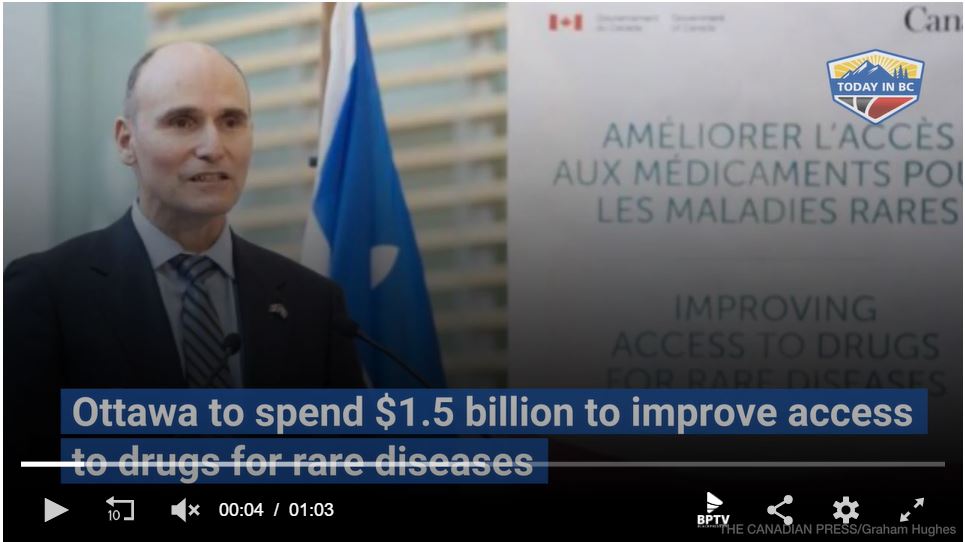$1.5 Billion Canadian National Strategy for Drugs for Rare Diseases
The Health Minister Jean-Yves Duclos announced measures in support of the first-ever National Strategy for Drugs for Rare Diseases, with an investment of up to $1.5 billion over three years. This will help increase access and affordability of effective drugs for rare diseases to improve the health of patients across Canada, including children.
As part of this overall investment, the Government of Canada will make available up to $1.4 billion to provinces and territories through bilateral agreements. This funding will help provinces and territories improve access to new and emerging drugs, as well as support enhanced access to existing drugs, early diagnosis, and screening for rare diseases.
Duclos said 9,600 people could benefit from the new funding, including 4,500 children. Around one in 12 people has a rare disease, Health Canada said.
Gail Ouellette, the president and scientific director of a Quebec group representing people with rare diseases — Regroupement québécois des maladies orphelines — said people with rare diseases face many obstacles in the health-care system, including the length of time it takes to get diagnosed and the high costs of treatment.
“But one of the worst things for these people is to know that a medicine exists for their condition, but to not have access — to know that it is authorized by Health Canada and that people like them have access elsewhere in the world or in other provinces, but not them,” she said.
Among the founders of Ouellette’s group were individuals with ataxia, a disease that leads to loss of muscle control; Morquio syndrome, a genetic condition that affects the growth of a child’s bones and organs; and Fabry disease, a genetic condition that can lead to heart and kidney problems.
Durhane Wong-Rieger, CEO of the Canadian Organization for Rare Disorders, told the news conference that the announcement recognizes the importance of early access to effective, promising medicines for patients “but also the need for early diagnosis and treatments, preferably before patients are seriously compromised.”
The new funding includes $20 million over three years to gather evidence on the safety and effectiveness of drugs, while another $32 million will be used over five years to fund research on rare diseases and to establish a clinical trials network.
- Watch the video of the announcement.
- View the full government Press Release.

